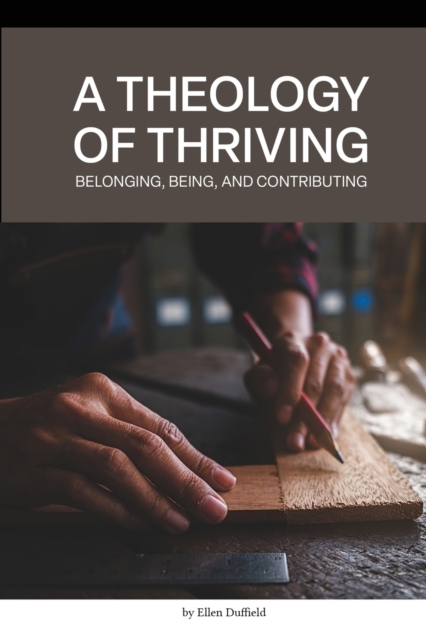A Theology of Thriving: Belonging, Being, and Contributing

A Theology of Thriving: Belonging, Being, and Contributing
To call God our Beloved seems audacious. To believe God calls us the Beloved seems almost impossible. Yet it is true. Scattered throughout scripture, with increasing intensity and significance, God invites us to this realization. Perhaps you are grieving the brokenness you see in yourself and others? Feeling alone, misunderstood, or perhaps worst of all, invisible? Perhaps you are wondering if this is all there is? We live in a beautiful yet broken world. But this is not the way it was meant to be. And more importantly, this is not the way it has to be.
In the opening chapters of Genesis, we find hints of what we were created for, tantalizing insights into what it means to thrive. In them, we see a picture of the completeness, wholeness, harmony and reciprocity that in Old Testament language is called Shalom. Jesus calls it Abundant Life, and He demonstrates the countless ways that God longs for us to experience it.
The community God creates is multifaceted and multi-layered. It includes deep and authentic relationships with Him, with other people, with ourselves, and with the rest of creation. Belonging could not be more integral to who God is, who we are, and how we engage with Divinity and humanity. Belonging spaces, properly understood, are, of course, much more than mere social spaces or friend groups. True spaces of belonging are sacred spaces, where God lives and moves - redeeming, reconciling, and recreating.
Our identity is the second thing mentioned in the Genesis passage. Belonging precedes and dramatically informs Being. By creating from community and calling us into community, God gives us the opportunity for a relationship with Himself and with others. By creating us in His own image, God gives us the opportunity for a relationship with ourselves.
In ancient Hebrew thinking, being and doing could not be separated. In the West, we tend to think of these as distinct, often stressing that we should not define ourselves by what we do. For the ancient Hebrews, it made sense that what you do and what you say flow out of who you are, and that who you are is influenced by what you do. The third piece of God's ideal for thriving humanity is contribution. We are fully loved and fully
PRP: 92.94 Lei
Acesta este Prețul Recomandat de Producător. Prețul de vânzare al produsului este afișat mai jos.
83.65Lei
83.65Lei
92.94 LeiLivrare in 2-4 saptamani
Descrierea produsului
To call God our Beloved seems audacious. To believe God calls us the Beloved seems almost impossible. Yet it is true. Scattered throughout scripture, with increasing intensity and significance, God invites us to this realization. Perhaps you are grieving the brokenness you see in yourself and others? Feeling alone, misunderstood, or perhaps worst of all, invisible? Perhaps you are wondering if this is all there is? We live in a beautiful yet broken world. But this is not the way it was meant to be. And more importantly, this is not the way it has to be.
In the opening chapters of Genesis, we find hints of what we were created for, tantalizing insights into what it means to thrive. In them, we see a picture of the completeness, wholeness, harmony and reciprocity that in Old Testament language is called Shalom. Jesus calls it Abundant Life, and He demonstrates the countless ways that God longs for us to experience it.
The community God creates is multifaceted and multi-layered. It includes deep and authentic relationships with Him, with other people, with ourselves, and with the rest of creation. Belonging could not be more integral to who God is, who we are, and how we engage with Divinity and humanity. Belonging spaces, properly understood, are, of course, much more than mere social spaces or friend groups. True spaces of belonging are sacred spaces, where God lives and moves - redeeming, reconciling, and recreating.
Our identity is the second thing mentioned in the Genesis passage. Belonging precedes and dramatically informs Being. By creating from community and calling us into community, God gives us the opportunity for a relationship with Himself and with others. By creating us in His own image, God gives us the opportunity for a relationship with ourselves.
In ancient Hebrew thinking, being and doing could not be separated. In the West, we tend to think of these as distinct, often stressing that we should not define ourselves by what we do. For the ancient Hebrews, it made sense that what you do and what you say flow out of who you are, and that who you are is influenced by what you do. The third piece of God's ideal for thriving humanity is contribution. We are fully loved and fully
Detaliile produsului










